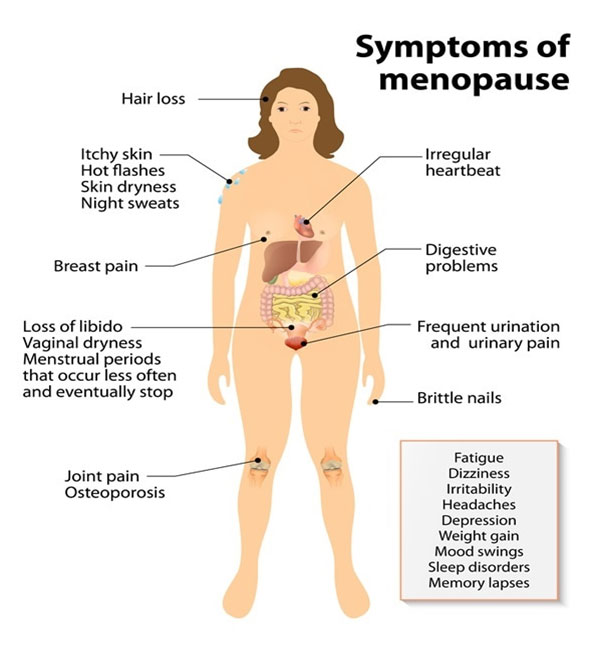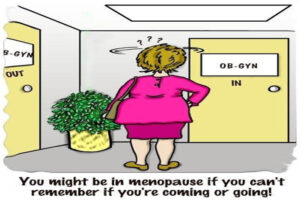What is menopause?
Menopause is the permanent cessation of menstruation at the end of reproductive life due to loss of ovarian follicular activity.
In short, menopause
– The end of a women’s monthly period
– Can occur as early as 40 or as late as 60 (average age is 51)
– A series of emotional and physical changes in a women’s body
– Ovaries no longer produce enough estrogen to continue menstruation
– Overall decrease of estrogen in the body
– No predictable rate of transition to menopause
There are three Stages of Menopause
– Perimenopause( 35 to 45 yrs)
– Menopause(45 to 55 yrs)
– Post Menopause(2 to 10 yrs after)
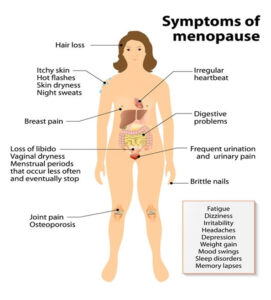
Metabolic Syndrome
Risk CVD & diabetes
Natural aging vs medical disorder
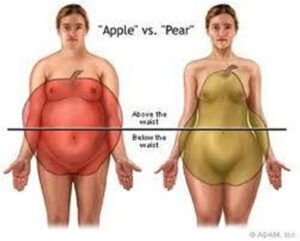
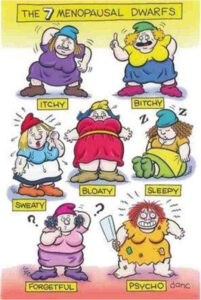
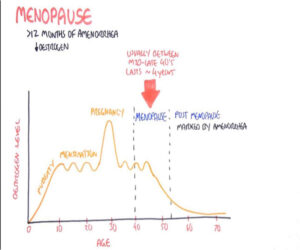
Menstrual Cycle
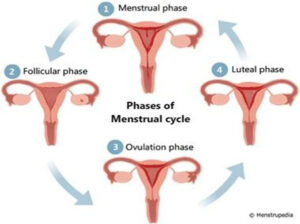
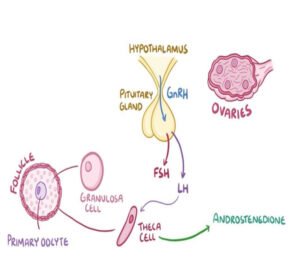
Menopause Symptoms
| Symptom | What you can do |
| Hot Flashes/Night Sweats | Dress in layers Keep Thermostat down Avoid hot drinks Use a cold, wet washcloth against neck Use a fan Quit smoking, if you smoke |
| Vaginal Dryness | Use lubricants before sex Use a vaginal moisturizer Do your kegel exercises |
| Sleep Problems | Keep a circadian rhythm Avoid naps Avoid caffeine Avoid alcohol Relaxation Try sleep aid |
| Depression | Exercise and stay active Seek social support Talk about it |
Preventive Health:
Stay Active
– Prevent loss of bone and muscle mass
– Include aerobic, weight bearing, and strength training workouts
Avoid Smoking
– Smoking increases loss of bone density
Adequate calcium and vitamin D intake
– Help reverse bone loss and protect against osteoporosis
Eat well
– Help prevent and manage chronic health problems

